The Wuhan Coronavirus is making a lot of people turn to face masks who otherwise wouldn’t normally think about them. Questions come up, questions that are of concern both to people concerned about this virus, and those who simply prefer to wear masks to avoid sickness, or to contain their illness when they catch the strain of flu that circulates each year.
For many people, illness doesn’t mean they can shut down their lives until they feel better. You may be able to take a few days off from work, but you still need groceries, you still may need to pick children up from school, and any number of other tasks. Tasks that require driving.
So a question that naturally comes up is this: can you wear a mask while driving?
Mask Laws
There are few if any laws that govern the use of masks on a federal level. It’s one of those issues that is more often relegated to states to decide individually. The only federal-level laws regarding masks are laws such as “don’t wear a full face mask when you go into a bank or try to board an airplane,” you know, the kinds of safety laws that are more common sense than anything else.
At the state level, there may be laws about using masks while driving, or there may not. Most of the time, when there are, they aren’t talking about medical masks. They’re more often talking about full face masks, such as Halloween masks, full-on respirators, or ski masks.
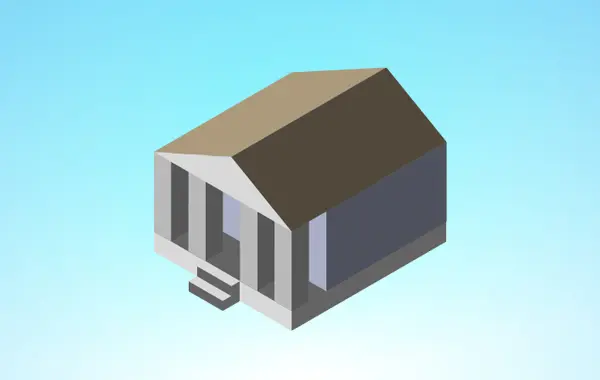
Some anti-mask laws exist solely to add “wearing a mask” as an additional crime on top of other criminal charges. For example, Michigan has a law that states that wearing a mask while committing a crime is a misdemeanor, which then becomes a secondary charge against those who are caught committing said crime. Simply driving from place to place isn’t a crime, so wearing a mask during that activity would not be illegal. And, again, this tends to apply more to ski masks and identity-covering masks, not N95 face masks and surgical masks. Other examples of mask laws include:
- Florida’s mask law makes it illegal to wear a mask on a public lane, walk, alley, street, road, or highway, whether walking or driving, if the mask, hood, or other device conceals their identity.
- New York’s mask laws makes it unlawful to wear an identity-concealing mask in a public place, while loitering or gathering, or in transportation facilities, among other restrictions. Exceptions are made for events such as masquerade parties or cosplay conventions.
- California’s mask laws are similar to Michigan’s, in that they are only applicable if the person wearing the mask is using it to conceal their identity while committing another crime, as a disguise while evading police.
Meanwhile, some other states have no laws regarding masks at all. Colorado and Texas both – as far as we can find, anyway – have no laws that restrict the ability of a person to wear a mask in all but the usual federally regulated places, like airports and banks.
There are certainly anti-mask laws that related to using masks in public places, during large demonstrations, and in some other situations, again usually at the state level. These laws were mostly originally enacted to help prevent hateful and violent organizations, but some stretch as far back as New York’s anti-mask laws from 1845, which related to relations between landlords and tenants. It’s fascinating to read about. Many mask laws are challenged sooner or later as a form of violation of the first amendment, for example.
To know for sure whether or not there’s an applicable mask law for your area, you will need to look at your state’s lawbook. Fortunately, most states have an easily searchable database for laws and legislation, so it shouldn’t be too hard to check with your local state government’s website.
Concerns Wearing Masks While Driving
There are essentially just three concerns that might arise about wearing a mask while driving.
The first concern is visibility. A typical mask that covers the lower face, mouth, and nose, is unlikely to affect your vision. Conversely, something like a ski mask, a Guy Fawkes mask, or a full-face respirator is going to cover part of your eyes. You will have, at best, reduced peripheral vision, and you’ll often have obscured vision in other ways. A face-covering respirator may have glare in the sunlight that can obscure your vision at certain angles.
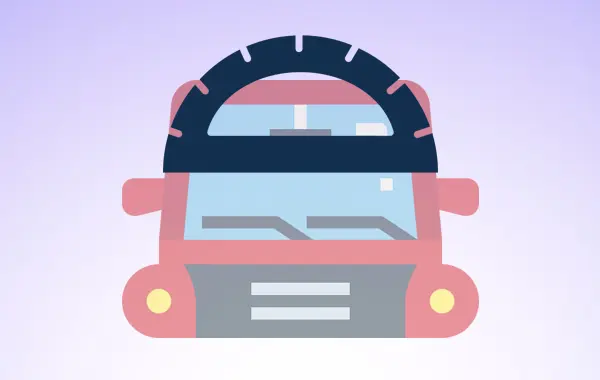
This is a concern for the driver and a concern for other people on the road. As the driver, you lose vision and awareness of other people around you. You may not be able to see and react to something like a child chasing a ball into a road, a car unexpectedly pulling out of a driveway, or another sudden hazard. Other people on the road may find you don’t react the way you should, for the same reasons.
As such, wearing a full-face covering might cause a police officer who notices to pull you over. At the very least, they will want to know why you’re wearing such a mask. In most cases, there won’t be a good enough explanation, and you’ll be asked to remove it while driving for the safety of yourself and others on the road. It won’t become a crime worthy of a ticket unless you are caught wearing the mask multiple times, or you refuse to remove it.
That said, some reasons to wear a full face mask might exist. For example, if you live in an area of California that is prone to lingering smoke from wildfires, you may want to wear a respirator or full-face mask to protect yourself from particulate in the air. Chances are that excuse will pass muster, though again, you may be asked to remove it while driving if it significantly obscures your vision.
The second concern is identification. This is typically only an issue in areas where speed or red light cameras use photographic driver identification to issue tickets, or if you are speeding or causing a road hazard yourself and a police officer pulls you over.
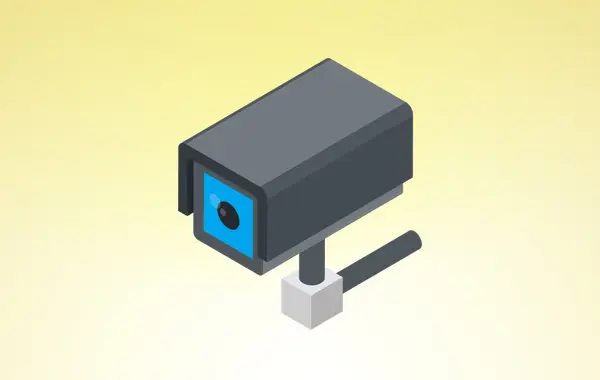
In the case of a camera, wearing a mask might be interpreted as intent to hide your identity while committing a crime, which may be a violation of state law, depending on your state laws.
In the case of being pulled over, the police officer will need to identify you. In many cases, even with a surgical or lower-face mask, they will ask you to remove it when they look at your ID to confirm your identity. For lower-face and surgical masks, you will often be allowed to put it back on, particularly if the reason you’re wearing it is for disease protection. It only becomes an issue if you refuse to remove it when asked, and even then it may depend on the officer.
The third concern is, of course, the potential vector for infection. While driving, you’re probably not going to come into contact with an infection from the air that makes it through your car’s air filters. If you’re driving alone, you can usually afford to take your mask off and be safe from infection from external sources.
On the other hand, if you’re sick and want to use a mask to protect others from catching what you have, wearing the mask can avoid leaving disease residue on the various surfaces of your vehicle, which can linger for days and infect others who use or ride in your vehicle later. Keeping the mask on in those cases can protect those around you.
Of course, if you’re driving and are carrying passengers, wearing will offer some protection, assuming your mask is of the appropriate type to filter out airborne pathogens. Conversely, using a mask can contain your illness to avoid getting your passengers sick.
Does a Surgical Mask Conceal Identity?
What this discussion mostly boils down to is “does a medical mask conceal your identity?”
In some cases, wearing a lower face mask coupled with something like a hat and a large pair of sunglasses might be considered sufficient to conceal your identity. However, in most cases, something like a simple surgical mask or a lower-face covering mask is not going to be considered an identity concealment.
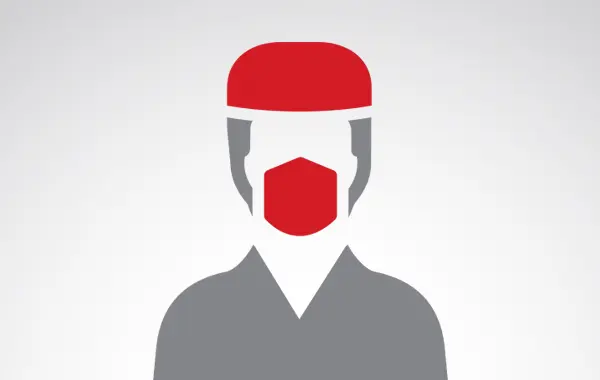
The primary trouble here is that there are no consistent laws or definitions in place to regulate this. You can drive for years wearing a surgical mask to protect yourself from illness and it will never be a problem, but you get pulled over once by a cop who is having a bad day and suddenly you’re cited for violating a mask law you didn’t even know existed in your area.
In general, however, you’re going to be fine while wearing a simple mask, whether it’s a paper air filtering mask or a more robust cloth mask.
Should You Wear a Mask While Driving?
In most states, you can wear a mask while driving, but the question is, should you? You have a couple of considerations to make.
Are you ill? If you’re currently suffering from a cold, the flu, or another contagious illness, it’s probably a good idea to wear a mask whenever you’re in a situation where you may come into contact with other people. In addition to wearing the mask, you’ll want to take the proper kind of precautions to avoid the spread of disease, such as making sure to wash your hands or use hand sanitizer, avoid touching your noise, mouth, or eyes, and so on.

If you are not currently ill, do you have a compromised immune system? If so, wearing a mask might help to protect you against airborne pathogens, though a large portion of the spread of disease comes from contact with contaminated surfaces, not from the air.
Will you be in contact with other people? If you’re driving for a carpool, for example, wearing a mask can help protect you from any pathogens that they might be carrying, or protect them from the pathogens you might carry.
A similar situation would be something like Uber. If you’re a driver for Uber, you will find that there are no regulations on whether or not you can wear a mask while driving, but wearing one might be off-putting for some people so you might have fewer fares and might have people leaving a lower rating because of it. Masks can be a little off-putting, even if you get a designer mask with a fun pattern on it.
Of course, if you’re ill, it’s generally better than you avoid driving as much as possible. It can be a hazard of its own, if you need to sneeze or cough while driving and take your eyes off the road. Not to mention many cold medicines have instructions telling you to avoid operating heavy machinery, which includes cars. Trying to work while sick is going to be a negative for everyone involved.
Whether or not you choose to wear a mask while driving is your own decision, but it’s not illegal or immoral to do so. The only concerns are typically practical concerns, including visibility and the possibility of an altercation with police. The first is unlikely to be a problem with a lower-face mask, and the second is unlikely in most situations.
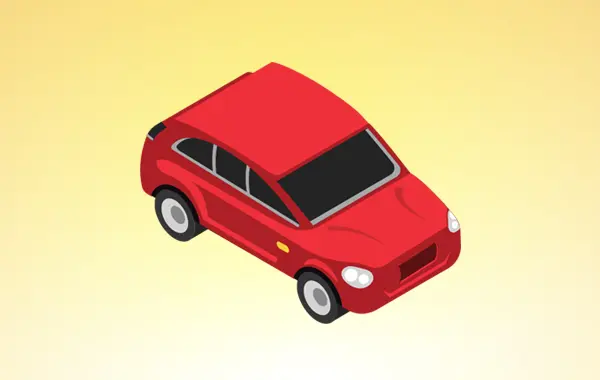
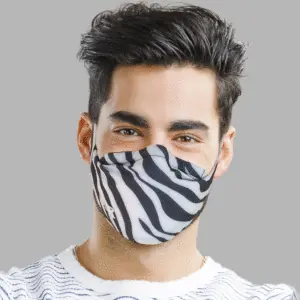

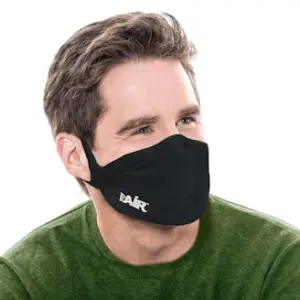
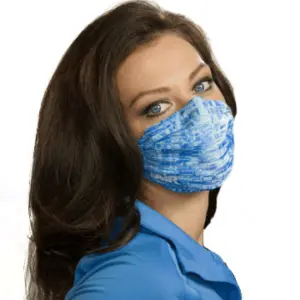

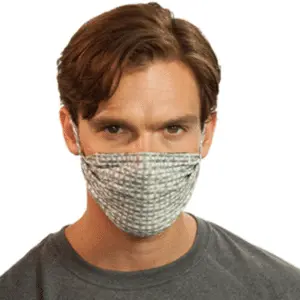
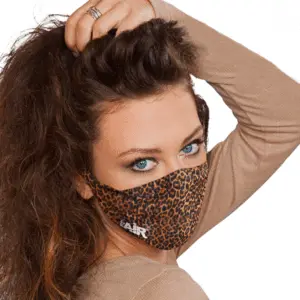
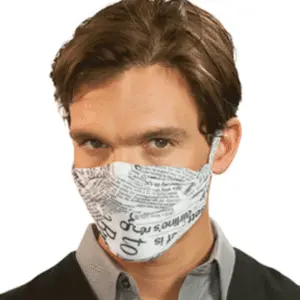
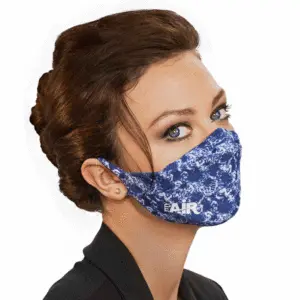

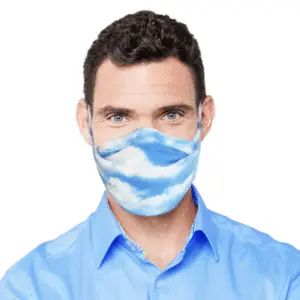
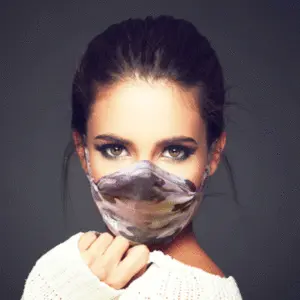
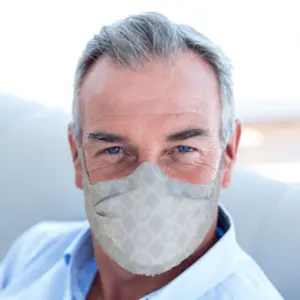
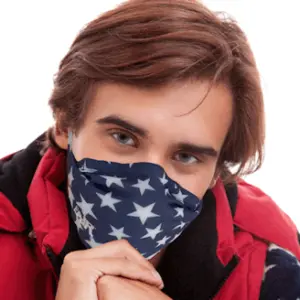
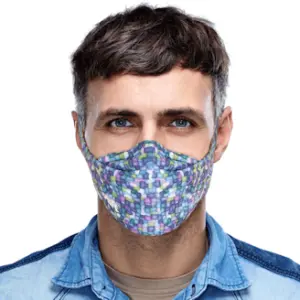

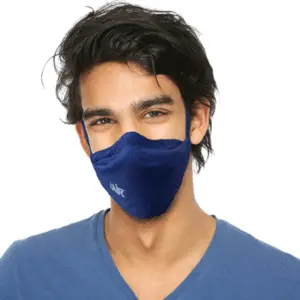


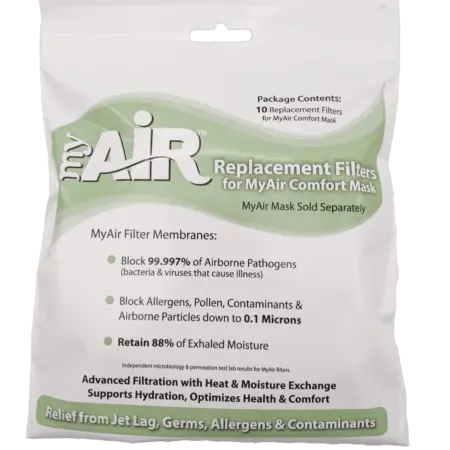
0 Comments